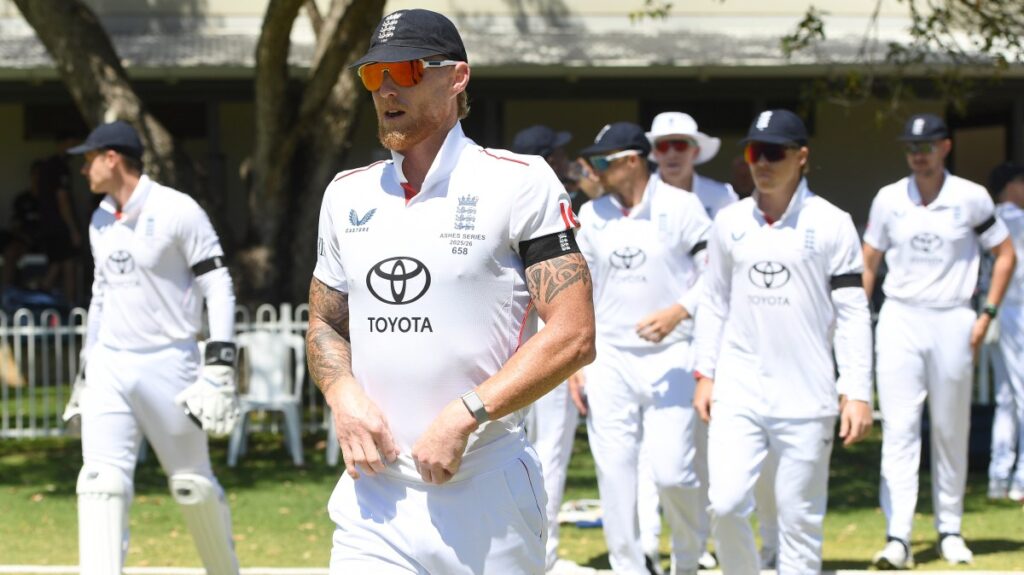
As England’s cricket team gears up for the Ashes series in Australia, the focus has shifted from physical readiness to mental resilience. Captain Ben Stokes had promised a high-intensity intra-squad match to compensate for the lack of competitive play, but replicating the fervor of an Ashes Test proved impossible. Concerns arose when Mark Wood, a key player, failed to complete his first competitive day on tour, casting doubt on his availability for the opening match in Perth.
The prospect of Wood, 35, partnering with Jofra Archer, 30, in the series opener was always optimistic. Wood has not played competitively for nine months, and Archer has been absent from red-ball cricket for even longer. An early scan now determines Wood’s fate, with England hoping to field both players from the start. However, the more realistic target may be Brisbane, given the extended interval between the first and second Tests.
Strategic Choices and Player Readiness
England’s team selection for the practice match hinted at strategic decisions, with Ollie Pope positioned at No3 and no spinner included. Jacob Bethell’s early dismissal for the Lions XI highlighted ongoing challenges, as noted by cricket analyst Steve James. Bethell’s struggle with the pull shot has been a recurring issue, underscoring the importance of technical refinement.
Meanwhile, Ben McKinney, a promising young opener from Durham, showcased his potential. England views McKinney as a player suited to the higher demands of international cricket, akin to Zak Crawley. His performance, though promising, was set against a backdrop far removed from the intensity of an Ashes Test.
Preparation: A Balancing Act
The relaxed atmosphere of the practice match, held at a venue reminiscent of an English outground, contrasted sharply with the high-stakes environment awaiting England next week. The preparation debate continues, with some arguing that more first-class cricket would better position players. However, history shows that traditional preparation does not always translate to success in the Ashes.
Stokes argues that modern schedules demand unconventional preparation, a sentiment echoed by past tours. The real test lies in the mental fortitude required to face the fervent Australian crowds eager to witness England’s “Bazball” strategy challenged from November 21 onward.
The Mental Challenge Ahead
Preparation encompasses technical, physical, and mental aspects, with the latter being crucial. Players must reach a state of mental readiness akin to Joe Root’s mastery. The challenge is personal, with each player responsible for maintaining their mental and technical equilibrium.
England’s approach to physical conditioning is riskier, relying on minimal match practice. Questions linger over whether one intra-squad match suffices for players like Wood and Archer, who have been out of first-class cricket for months. The mental aspect, however, remains the most daunting, as evidenced by Rory Burns’ experience on the previous tour.
Australia’s Contrasting Approach
In contrast, Australia’s squad has been actively engaged in Sheffield Shield cricket, with most players participating in early-season matches. While this strategy carries its own risks, such as injuries to key players like Sean Abbott and concerns over Josh Hazlewood, it underscores the different paths taken by the two teams.
Despite recent criticism in the local media, England received unexpected praise from former Australian captain Ricky Ponting, who described Stokes’s team as “the best they [England] have had probably this century.” Such endorsements, while flattering, do little to alleviate the pressure as the Ashes approach.
As England’s preparation phase concludes, the true test begins. The mental and physical readiness of the players will soon be put to the ultimate challenge, with the weight of past performances and expectations looming large. The Ashes series promises to be a defining moment for both teams, with England’s unconventional preparation set to face its sternest examination yet.






